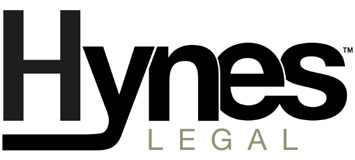The meaning of ‘full and accurate minutes’ – the devil is in the detail
This article first appeared on the Smart Strata website.
There are two sets of minutes that must be kept by every body corporate. Those at committee level and those at general meeting level.
This article deals with what must happen at committee level.
Everyone has seen some version of minutes somewhere. It could be from their local sporting club’s Annual General Meeting or that of BHP. What those minutes look like will be referenced back to what the legislation that governs them requires.
As you would expect, what needs to be in a set of committee meeting minutes is covered in the Body Corporate and Community Management Act 1997 and the related Modules.
Each committee must ensure that:
- full and accurate minutesare taken of each committee meeting; and
- a full and accurate recordis kept of each motion that was voted on.
But what does this actually mean?
The easy stuff
There is a bunch of information that is factual and uncontroversial, including:
- The date, time and place of the meeting;
- the names of persons present and details of the capacity in which they attended the meeting;
- details of proxies tabled;
- the time the meeting closed;
- details of the next scheduled meeting;
- the secretary’s name and contact address.
These are all matters of fact and do not require further explanation. Nothing here is open to interpretation.
What was voted on
This is where we get into the dispute territory. The first section requires:
‘for each motion voted on at the meeting –
- the words of the motion; and
- the number of votes for and against the motion.
This was disputed in The Cannery [2008] QBCCMCmr 17.
This decision held that (our underlining):-
“A minute must record a decision made by the Committee. General discussion and who said what need not be recorded at all. The minutes are not a transcript of what was said. The committee is free to discuss what it likes. However, where discussion is recorded, it should be recorded fairly and accurately, which would suffice the requirement that the body corporate acts reasonably.”
In Pelican Heights [2011] QBCCMCmr 167 the adjudicator relevantly provided that:
“Accuracy relates to the truth of what happened in the meeting or vote, rather than the truth of opinions or facts considered in the vote. The record is entitled to report what actually happened or views actually held regardless of the validity of what was done or considered.”
So our takeaways are these:
- Transcripts of who said what are not required.
- The minutes do not need to delve into any detail if there is debate on each motion.
- If the minutes do record discussion, debate or opinions, they must be presented fairly and accurately. This would ideally be in a dot point summary like we are doing with our comments here.
What was tabled
The minutes must record:
‘details of correspondence, reports, notices or other documents tabled’
In Parkwood Villas [2010] QBCCMCmr 521 the adjudicator relevantly provided that (our emphasis):
“Correspondence or other documents should be tabled at a committee meeting (and then minuted) if a committee member (perhaps most commonly the secretary who would handle most correspondence) chooses to table it. In particular, documents would be tabled if they are the subject of discussion at the meeting. It is arguable that the mere discussion of a document amounts to its tabling such that it should be minuted if it is discussed at the meeting”.
In Valley Terraces Echohamlets [2012] QBCCMCmr 314 the adjudicator relevantly provided that (our emphasis):
Further, I am not satisfied the committee has contravened the legislation by failing to list every item of correspondence received within the minutes. The legislation requires the minutes include ‘details of correspondence, reports, notices or other documents tabled’ (Standard Module, 55(5)(e)). The use of the word ‘or’ indicates this should be read as ‘correspondence tabled, reports tabled, notices tabled or other documents tabled’. Bodies corporate might receive wide ranges of correspondence in varying quantities and there is no requirement that every single item of correspondence received by the body corporate be tabled at a committee meeting. The requirement is simply that if an item of correspondence is tabled then it should be listed in the minutes.
So, similar to the discussion on what was voted on, there is no obligation to table all documents received by the body corporate. If material is tabled the detail of it must be recorded in the minutes.
The overriding obligation of the body corporate to act reasonably comes into play here. Clearly, tabling every email of a 40 person long email chain is not necessary. Tabling a formal complaint from a lot owner about the chairperson’s abusive conduct at the recent Annual General Meeting would be necessary.
Finding that balance is always the battle.
What are ‘details’?
The first part of the section talks about the ‘details’ of correspondence that was tabled.
This does not mean a copy of any material tabled needs to be sent to owners with the minutes.
The tabled document would form part of the body corporate record. To that end, the adjudicator in The Astor Centre [2013] QBCCMCmr 477, relevantly provided that:
“The body corporate has an obligation to give details of correspondence tabled in the minutes. If documents are tabled, they must be given to an ‘interested person’ when requested as they would form part of body corporate records.”
Again, each committee needs to find the balance. In some instances, it might be easier to send a whole document. In others, it may be simpler to send a summary of the material.
This will avoid any argument that the committee failed to provide adequate details.
In Contessa Condominiums [2013] QBCCMCmr 383, the adjudicator relevantly provided that:
“The committee failed, however, to attach written quotations (if any) from TP to the minutes of the meeting, or details of any other documents tabled and considered at the meeting, for example, “the design shown” to the meeting in respect of the lounge or brochures about flooring, contrary to section 55(5)(e) Standard Module. It is also a failure of the committee’s duty to owners to act reasonably and transparently. Owners who are not present at committee meetings have a right to know in what way the committee is exercising its powers and spending body corporate funds.”
Accordingly, unless the material is voluminous, it may be worthwhile on contentious matters to attach copies of tabled documents to the committee minutes. This may go beyond a committee’s statutory obligations, but prevent the sometimes inevitable Commissioner’s application.
The alternative would be to provide details that are relevant – which for a quote might be:
- who it was received from;
- the quoted price;
- the inclusions or exclusions;
- the date it was received;
- what the purpose is for; and,
- other important commercial terms
with a note that a full copy can be obtained from the body corporate records.
The devil literally is in the detail.
Committees definitely do not have to circulate every piece of correspondence received from owners, but if they are going to exclude it (especially on contentious matters), they need to be wary.
A set of committee meeting minutes is not a propaganda tool for disaffected owners to get free distribution of their concerns to all lot owners, but if what owners are sending is relevant, the committee needs to be mindful to ensure it finds the middle ground in terms of what is sent, bearing in mind that obligation to act reasonably.





